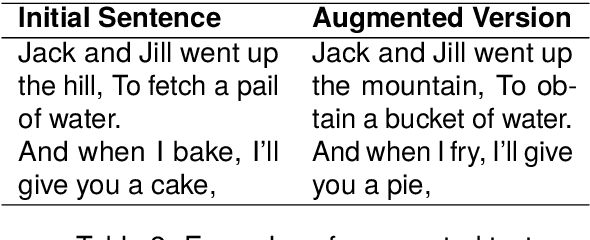Aditya Narayan Sankaran
Towards Cross-Lingual Audio Abuse Detection in Low-Resource Settings with Few-Shot Learning
Dec 03, 2024Abstract:Online abusive content detection, particularly in low-resource settings and within the audio modality, remains underexplored. We investigate the potential of pre-trained audio representations for detecting abusive language in low-resource languages, in this case, in Indian languages using Few Shot Learning (FSL). Leveraging powerful representations from models such as Wav2Vec and Whisper, we explore cross-lingual abuse detection using the ADIMA dataset with FSL. Our approach integrates these representations within the Model-Agnostic Meta-Learning (MAML) framework to classify abusive language in 10 languages. We experiment with various shot sizes (50-200) evaluating the impact of limited data on performance. Additionally, a feature visualization study was conducted to better understand model behaviour. This study highlights the generalization ability of pre-trained models in low-resource scenarios and offers valuable insights into detecting abusive language in multilingual contexts.
Revisiting The Classics: A Study on Identifying and Rectifying Gender Stereotypes in Rhymes and Poems
Mar 25, 2024



Abstract:Rhymes and poems are a powerful medium for transmitting cultural norms and societal roles. However, the pervasive existence of gender stereotypes in these works perpetuates biased perceptions and limits the scope of individuals' identities. Past works have shown that stereotyping and prejudice emerge in early childhood, and developmental research on causal mechanisms is critical for understanding and controlling stereotyping and prejudice. This work contributes by gathering a dataset of rhymes and poems to identify gender stereotypes and propose a model with 97% accuracy to identify gender bias. Gender stereotypes were rectified using a Large Language Model (LLM) and its effectiveness was evaluated in a comparative survey against human educator rectifications. To summarize, this work highlights the pervasive nature of gender stereotypes in literary works and reveals the potential of LLMs to rectify gender stereotypes. This study raises awareness and promotes inclusivity within artistic expressions, making a significant contribution to the discourse on gender equality.
 Add to Chrome
Add to Chrome Add to Firefox
Add to Firefox Add to Edge
Add to Edge